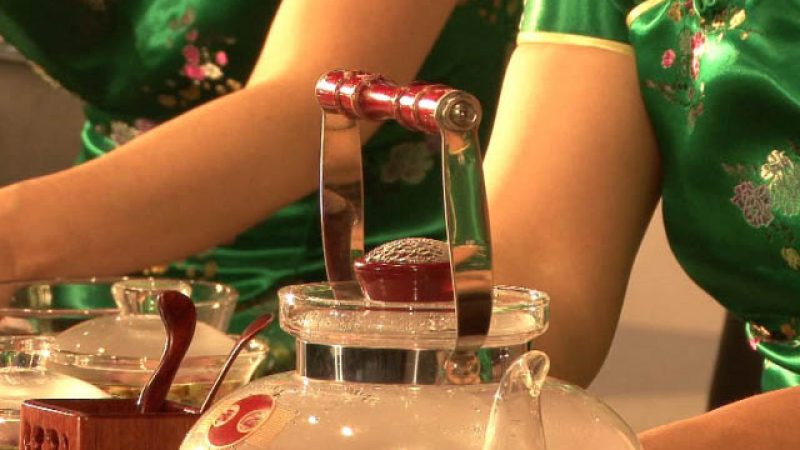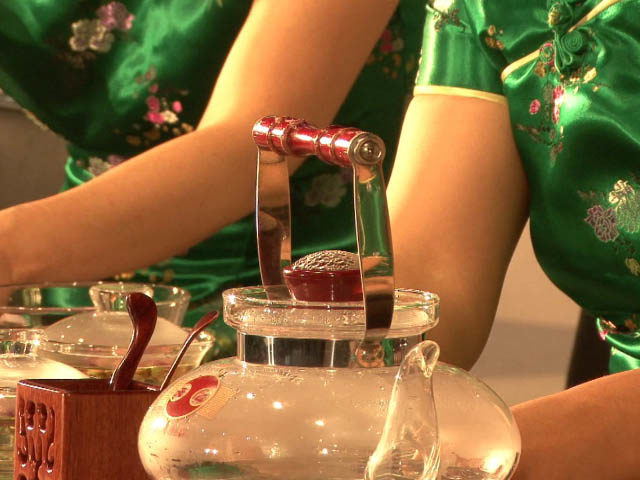
Tea Ceremony Flourishes in Korea

Women have been passing on the Korean tea ceremony, or darye, for generations. This passion has come to fruition in the the Daegu World Tea Culture Festival. A festival organizer, Professor Kim, describes some childhood memories of darye.
[Professor Kim Gil Ryung, Expo Organizer]:
“When I was young, my mother taught the tea ceremony in the second floor at our home. Students came to my house to get lessons. And when she became older, she started to teach the tea ceremony at the Tea Institute.”
She followed in her mother’s footsteps and before long the World Tea Culture Festival was set up. The festival covers darye as well as Chinese and Japanese tea rituals.
But the expo hasn’t forgotten its roots. Darye takes centre stage at the festival. It’s been practiced for thousands of years with two major kinds of ceremonies, the “Day Tea Rite” and “Special Tea Rite”. This Lotus tea ceremony is a special tea rite performed for loved ones. Colored scarves symbolize different aspects of life.
[Cho Soo Kyung, Tea Ceremony Presenter]:
“Each color of scarf has its own meaning. White means universe, blue means land, yellow means human virtue, red means heaven. The small white scarf means pregnancy, pink scarf means joy and delight, so we believe the tea ceremony includes the universe.”
The tea’s tied up inside a lotus flower and then opened up in the morning. It’s then presented to the loved one.
Cho Soo Kyung’s teacher has been passing on darye for almost a decade. She tells why she loves doing the tea ceremony.
[Kim Miyok, Tea Ceremony Teacher]:
“When I started to learn the art of the tea ceremony it was just a way to spend my spare time and I didn’t know whether I really liked it or not. But now I’m really into the art form, its part of me.”
“From picking the tea leaves and making tea, to drinking and storing it, these processes are all parts of the art of tea. It guides one to contemplation. Following the tea-making process leads one to cultivating the heart and mind.”
These women and many more are keeping the tradition of darye a part of life.
Emma Hall, NTD, South Korea.
 (NTDTV)
(NTDTV)



![[Live] Magdeburg: Pressekonferenz mit Polizei und Staatsanwaltschaft](https://images-de.epochtimes.de/uploads/2024/12/THUMB-PK-Magdeburg-400x225.jpg)























vielen Dank, dass Sie unseren Kommentar-Bereich nutzen.
Bitte verzichten Sie auf Unterstellungen, Schimpfworte, aggressive Formulierungen und Werbe-Links. Solche Kommentare werden wir nicht veröffentlichen. Dies umfasst ebenso abschweifende Kommentare, die keinen konkreten Bezug zum jeweiligen Artikel haben. Viele Kommentare waren bisher schon anregend und auf die Themen bezogen. Wir bitten Sie um eine Qualität, die den Artikeln entspricht, so haben wir alle etwas davon.
Da wir die Verantwortung für jeden veröffentlichten Kommentar tragen, geben wir Kommentare erst nach einer Prüfung frei. Je nach Aufkommen kann es deswegen zu zeitlichen Verzögerungen kommen.
Ihre Epoch Times - Redaktion